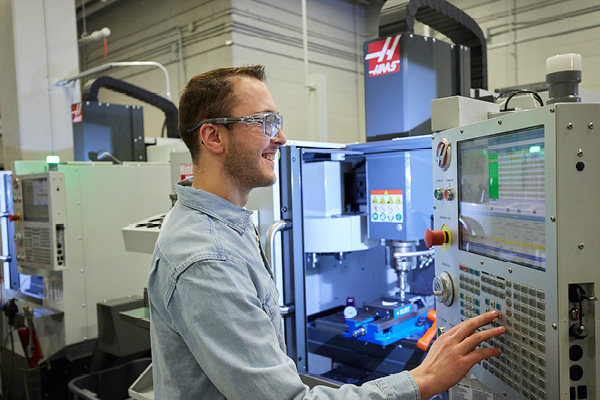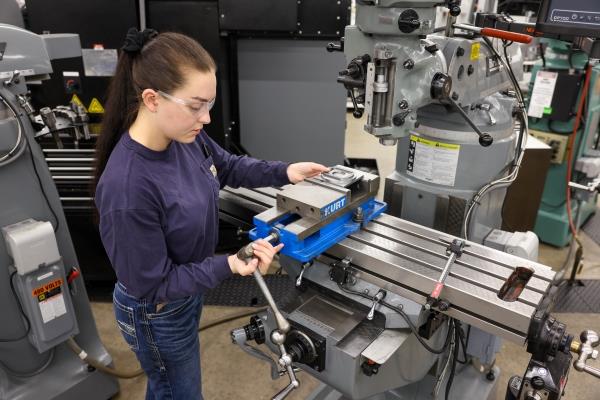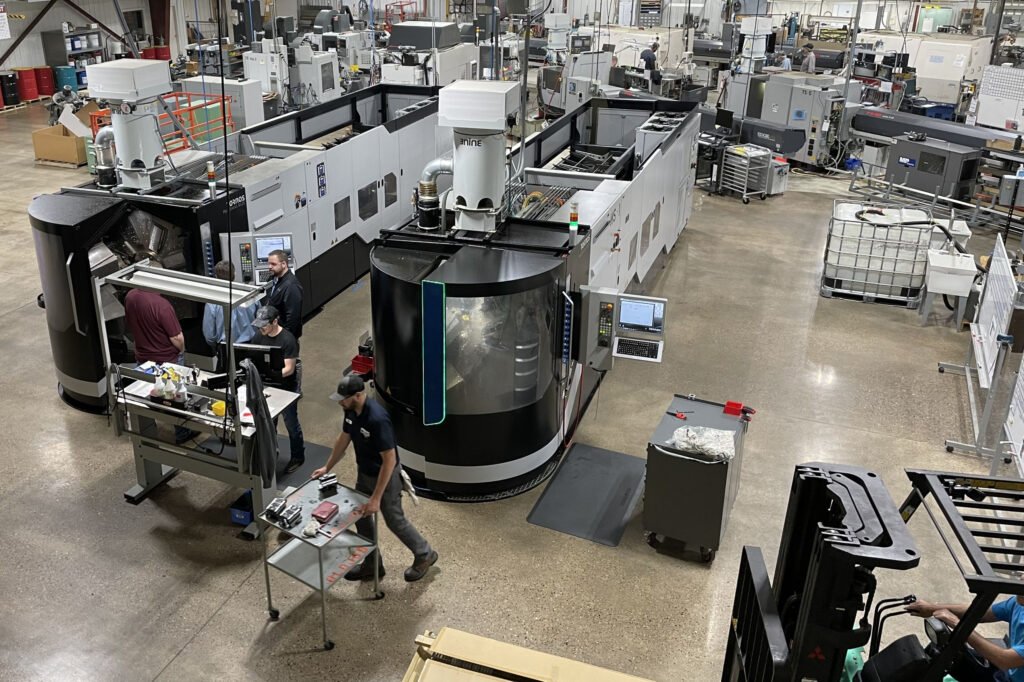Precision Machine
The machine shop is the term most commonly used in manufacturing to describe the room where such work is done. These are the workshops where raw materials become precision parts for industries ranging from aerospace to medical devices, automotive, and electronics. We provide a closer look at the magic happening inside these incredible spaces. The tools they use, the skilled talent behind them, and the technology that makes it all come to life.
Tools of the Future for Precision Machine Shop
One of the first things one may notice in a precision machine shop is the diversity of tools and machines. Thanks to the tools, shops can produce parts that are as complicated as they are precisely machined.
- CNC Machining: CNC is an abbreviation for Computer Numerical Control. These are the workhorses of almost any machine shop. They employ computer programs to guide cutting tools intricately. A CNC machine can be programmed to cut, drill, and mold materials with extreme precision. They can produce thousands of perfect copies of a part with virtually no error.
- EDM Machines: An Electrical Discharge Machine (EDM) is a machining method that uses an electrical spark to cut through a piece of metal. It is beneficial for working with tough materials or parts that have complicated shapes, which are difficult to cut with traditional methods.
- Measuring Tools: Precision work calls for precise measuring. Shops also rely on high-end measuring equipment, such as micrometers, calipers, and coordinate measuring machines (CMMs), to determine if a part conforms to the specifications.

Hiring Talent: The Human Connection
Despite all the technology, the human touch is essential. Machines are useless without talented people to operate and repair them. An excellent CNC Machining Services provider composed of skilled machinists, engineers, and quality inspectors who are knowledgeable about their tools and the materials they machine. The machinists are the individuals who operate the machines and ensure that each part is manufactured correctly. They read blueprints, install and set up machines, select the appropriate tools, and monitor the process. Skilled machinists are many things, including problem solvers. If something doesn’t come out right, they figure out what went wrong and make it right.
The Technology That Fuels Innovation
The latest technology forms of CNC Precision Machined Suppliers form the backbone of high-tech machine shops. Software, automation, and data have revolutionized the production of parts. These changes are all designed to make work faster, more accurate, and more efficient.
- CAD and CAM Software: Computer-Aided Design (CAD) and Computer-Aided Manufacturing (CAM) software are utilized to design parts and determine their manufacturing processes. On the one hand, CAD helps engineers draw complex models, and on the other, CAM translates those models into step-by-step instructions for machines.
- Automation and Robotics: Many shops now employ robots to load parts onto machines and remove them from the machines. It saves time and reduces human mistakes. Others can even work for hours without a single person in sight, a process known as “lights-out manufacturing. It boosts production and keeps the work going through the night.
- Smart Manufacturing: Machine shops are more connected than ever due to sensors, data collection, and real-time monitoring. Now, it is becoming possible to report on their performance, alert operators to problems, and even suggest maintenance. This minimizes downtime and maintains production levels.
We’re live and loud on Facebook — check us out

FAQs
What are the top industries for precision machining today?
It plays a crucial role in industries such as aerospace, medical equipment, automotive, electronics, and defense. These industries require precision, exacting tolerances, and high-grade material qualities that only precision machining can bring.
What is the difference between CNC and other machining methods?
CNC machining uses software to control the machinery automatically, allowing for a faster, more accurate, and repeatable process compared to machining done manually. It is ideal for parts with complex geometries and uniform quality, particularly in high-volume production.
Is CNC machining being replaced by 3D printing?
No, 3D printing is an excellent complement to CNC machining, not a replacement for it. 3D printing works well for prototype (complex) shapes, but CNC-machined parts will always be unbeatable when it comes to strength, effort, and scale of production.
What are the ways to maintain quality and precision when it comes to machine shops?
Cutting shops utilize sophisticated measuring devices, like calipers, micrometers, and coordinate measuring machines (CMMs).
